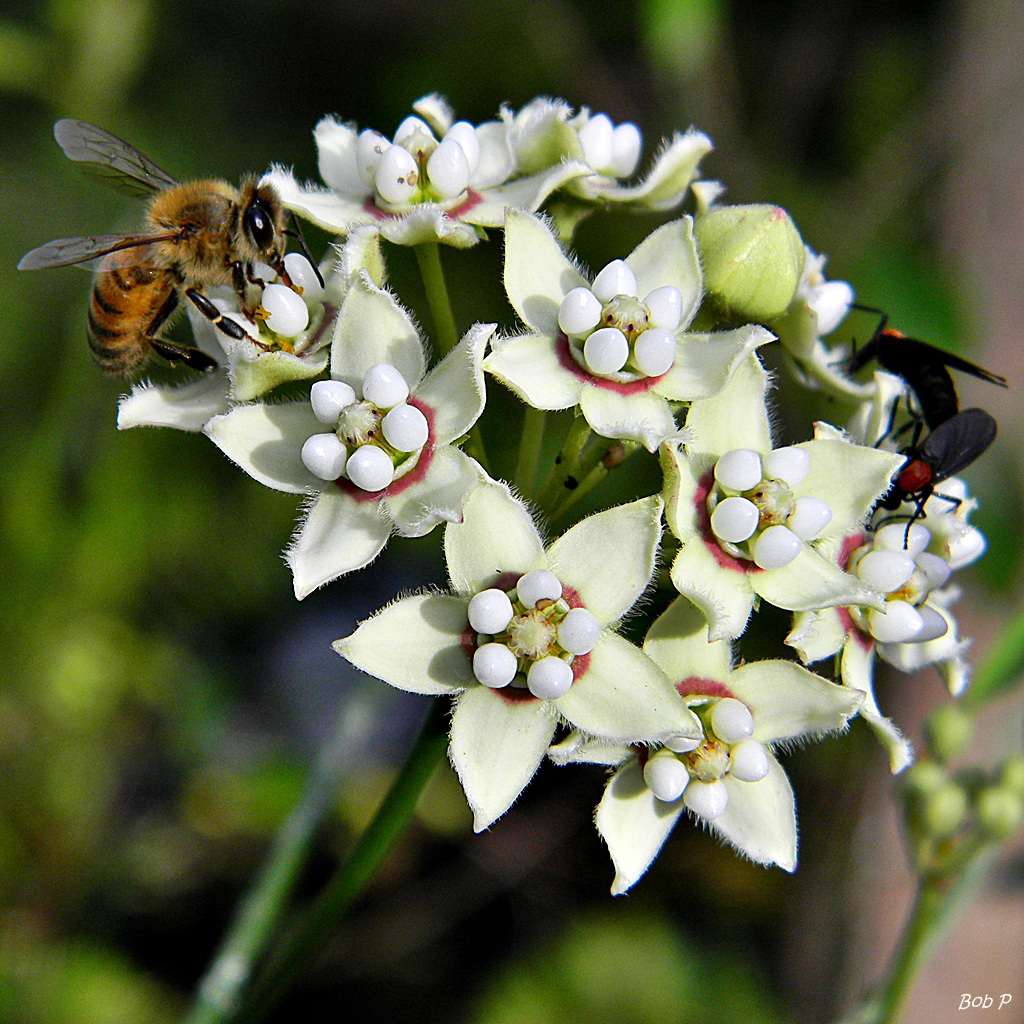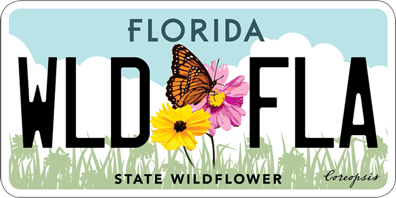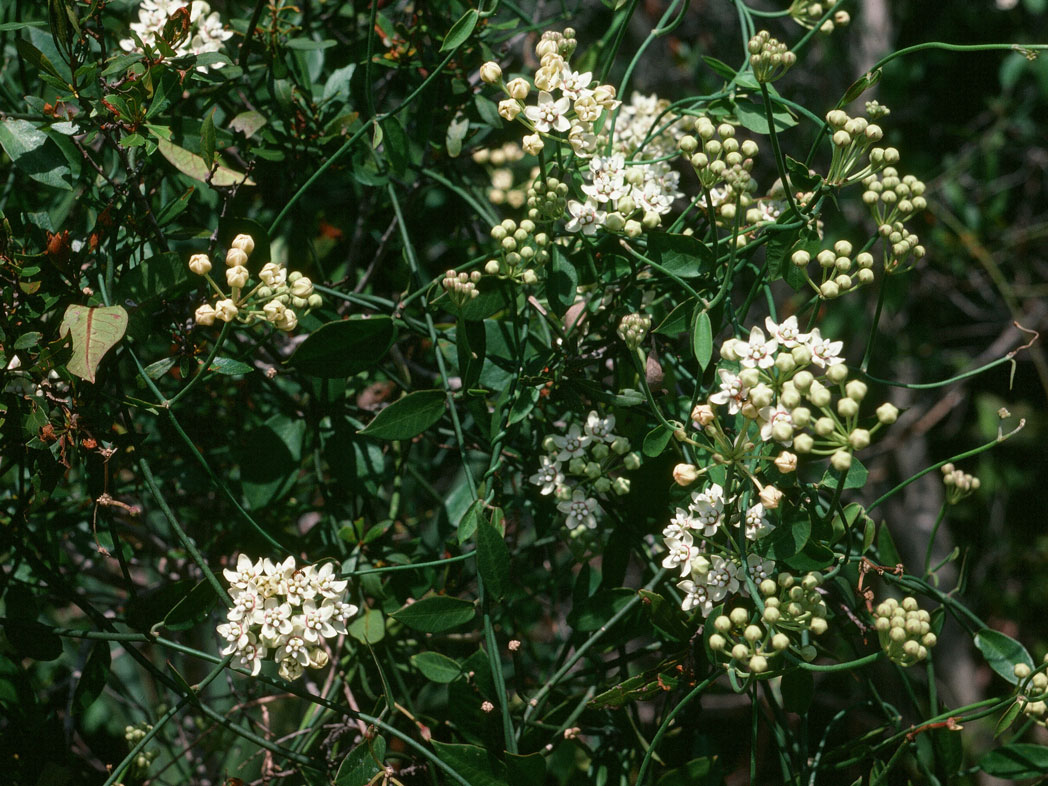White twinevine
Pictured above: White twinevine (Funastrum clausum) by Jenny Evans (CC BY-NC 2.0). Click on terms for botanical definitions. View post as a PDF.
White twinevine (Funastrum clausum) is an evergreen twining vine with large clusters of fragrant flowers. It occurs naturally in swamps, moist hammocks, coastal strands and wetland edges. Flowers typically bloom in summer and fall, but may bloom throughout the year. Like many members of the milkweed family, White twinevine is a larval host plant for Monarch, Queen and Soldier butterflies. Their caterpillars have adapted to feed on the plant, which contains a milky latex that is toxic to most animals. The flowers are also an important nectar source for bees and wasps.

White twinevine’s flowers are born in large umbels along the stem. Corollas consist of five pubescent white petals, each with a purple base. This forms a purple ring in the flower’s center. The calyx is five-lobed. Leaves are dark green, linear to oblong and somewhat succulent. They are oppositely arranged. Stems are stout. Seeds are born in erect follicles that dry and split open as the fruit matures. Each seed is attached to a white silky pappus that catches the wind and aids in dispersal.
Some sources classify this species as Sarcostemma clausum. It has also been known as Asclepias clausa and Cynachum clausum.
Family: Apocyanaceae (Dogbane or milkweed family)
Native range: Central peninsula south to the Keys
To see where natural populations of White twinevine have been vouchered, visit florida.plantatlas.usf.edu.
Hardiness: 9B–11
Lifespan: Perennial
Soil: Alkaline to mildly acidic, moist soil
Exposure: Full sun to partial shade
Growth habit: 10–30’+ long
Propagation: Seed, cuttings
Garden tips: This is an aggressive vine that can grow in many directions. In a home landscape, it may be difficult to control. It is best suited for a fence, arbor or trellis. This plant is not tolerant of freezing temperatures.
Although not generally cultivated for commercial sale, White twinevine plants are occasionally available from nurseries that specialize in Florida native plants. Visit www.plantrealflorida.org to find a nursery in your area.

